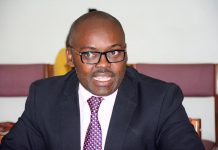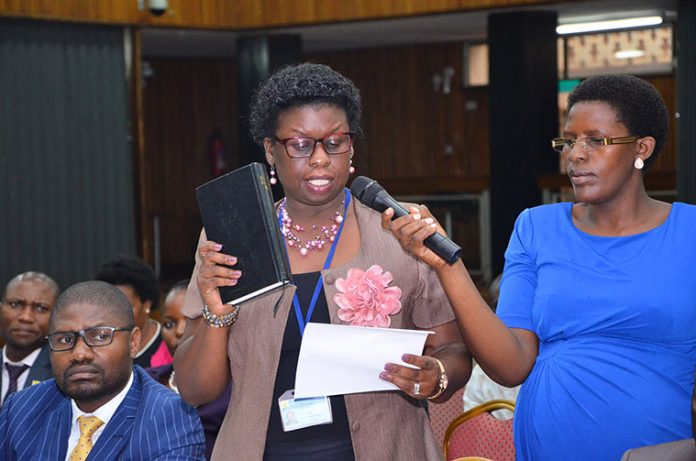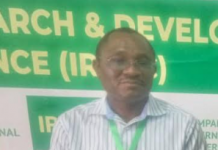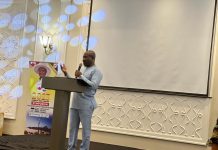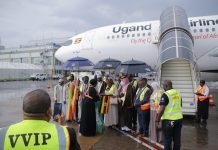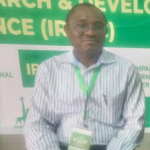The Committee on Commissions, State Authorities and Statutory Enterprises (COSASE) chaired by Kawempe South MP Mubarak Munyagwa on Tuesday, April 9, tasked the officials of Uganda Revenue Authority (URA) to explain circumstances under which fuel that had been confiscated went missing that forced the Authority to pay UGX63m in compensation.
The officials from URA led by the Commissioner General, Doris Akol had been summoned to respond to queries raised in the 2013/2014 Audit reports that noted that government was forced to pay businessman John Imaniraguha, who owned Fuelex Petrol Station after some of the fuel URA impounded pending verification was stolen in the custody of Shell Uganda.
According to the Auditor General’s report, URA seized 110,481 litres of petrol on May 30, 2006. The report adds that due taxes and penalties worth Shs93.9m were assessed and paid by the tax payer. But on the day of collecting the fuel, it was established that it was less.
Consequently, a sum of Shs63.3m was agreed and paid to the owner as compensation. The point of concern was that whereas taxes were collected at a rate of Shs850 per litre, compensation was at a higher rate of Shs6, 508.72 per litre.
“The fuel lost was only 8.81 per cent of the original seized quantity as compared to the compensation of 67.46 per cent of the taxes collected. There was no documentary proof that the officials responsible for the loss were ever reprimanded. Failure to reprimand the responsible officers against such losses may continue to escalate the problem due to negligence,” the Auditor General’s report read in part.
Ms. Akol said: “After this fuel was intercepted, it was deposited with Shell Uganda and after the case was resolved and the owner was supposed to pick it they found that portion was short. That didn’t take place with customs.”
However, her statement attracted more questions with Jinja East MP, Paul Mwiru tasking her to explain the arrangement the Authority has with Shell to allow URA deposit fuel.
Ms. Akol told the Committee that at the time, Shell operated a hospitality arrangement that would allow companies and individuals to deposit fuel, an arrangement that URA took advantage of and even said the UPDF officer who impounded the fuel at the Malaba border was recalled from duty by the army.
COSASE chairperson, Mr. Mubarak Munyagwa asked Ms. Akol to explain why URA didn’t consider having an agreement with Shell and if Shell had become part of URA. “I can’t understand how you impound meat and keep it in a zoo with a hyena. People’s property is being impounded with impunity. Unless we investigate this matter of fuel to its conclusion, we wouldn’t have helped the public. This is just a tip of the iceberg.”
Mr. Mwiru rejected the decision to have the UPDF officer take blame for the missing fuel arguing: “Can 9,000 litres be put in a pocket? How did an officer move away with 9,000 litres of fuel? It is inconceivable that one officer can take it away. What was the time taken from the time of ceasing the fuel?
Ms. James Kisame, the assistant commissioner enforcement told the Committee that the case occurred in 2006 when the importer brought in fuel consigned for DRC and he prepared transit documents showing it was enroute to DRC and when URA officers looked at the documents and discovered the documentation was fraudulent, that is when they decided to impound the fuel.
He explained: “The practice of this taxpayer is that he used to divert fuel on market by not paying tax and in the process of passing through Uganda he finds mechanism of remaining in Uganda.”
He later admitted that URA fell short of its obligations when they failed to measure the fuel upon confiscation.




